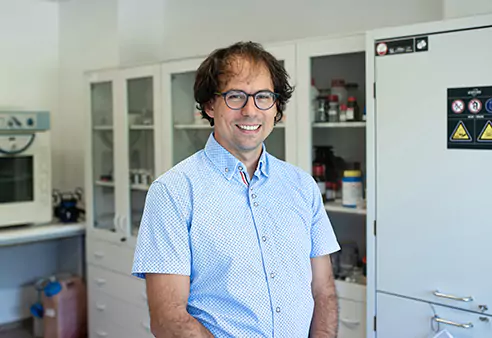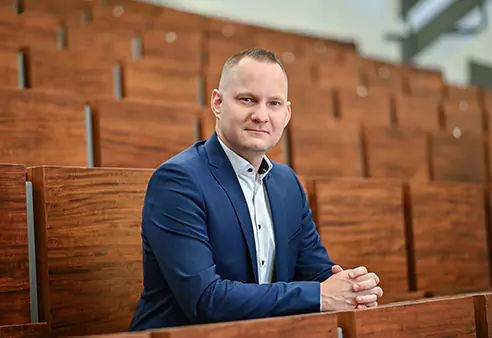RNDr. Viktória Čabanová, PhD. works at the Biomedical Research Center of the Slovak Academy of Sciences. She researches mosquitoes and pathogens spread by mosquitoes. The main topic of her research is the study of West Nile virus and Usutu virus, and changes in their behaviour.
Although West Nile virus and Usutu virus have been present in Europe and Slovakia for several decades now, last year witnessed an eightfold increase in the number of neuroinvasive infections caused by these viruses. These numbers are expected to continue rising in the future, along with other viruses spread by mosquitoes. “The aim of my research is to find out what causes these changes and help people prepare for them. I focus on making the results of my research usable in practice, whether in epidemiology or in diagnostics,” Viktória Čabanová says.
In her research, she also investigates the prevalence of the aforementioned viruses in the Slovak population. West Nile virus can be transmitted by blood transfusion, which presents a high risk for blood transfusion recipients. As they often suffer from health issues, they have a higher chance of developing a neuroinvasive disease, such as encephalitis or meningitis, when receiving the virus along with donated blood. Blood donors are not usually tested for these viruses. “This is why we are trying to identify which parts of Slovakia have the highest occurrence of these viruses, so that blood donors in those areas can start getting tested for them. We also want to spread awareness in the public, but mainly among general practitioners and doctors dealing with infections that there is a virus circulating in the population and that it must be taken into account.”
As Viktória Čabanová researches viruses spread by mosquitoes, a lot of her work takes place in the field, where she captures insects. She uses CO2-emitting traps that mimic the host –humans. She then identifies the mosquitoes in the lab and searches for viruses. “Field work gives us a better perspective that we can then use to better connect our work in the lab with practice. I have first-hand experience with human intervention in the environment that causes higher occurrences of the virus. Take villages that keep expanding. This expansion omits common features, such as ditches and trenches, that drain rainwater. Without them, the water pools and creates mosquito hatcheries,” Čabanová says, explaining the benefits of field work.
Besides pathogens themselves, she also researches the mosquitoes – their behaviour and body structure. “It makes my research interdisciplinary, and I really like that. There’s a bit of entomology, virology, and molecular biology.”t was her love for nature and living creatures that brought her to the path of science. She graduated from zoology at the Faculty of Natural Sciences of Comenius University Bratislava and started focusing on mosquito-borne viruses during her postgraduate studies. “I think mosquitoes are beautiful. Look at them under a microscope and you’ll see all the tiny hairs covering their bodies. There are over 3,500 mosquito species in the world and each one looks different. Some are even gold or metallic in colour, which is fascinating. They are also very intelligent; they can always find a way to survive and adapt,” she explains.
In 2020, Viktória Čabanová received the Science and Tech Personality Under the Age of 35 Award from the Slovak Ministry of Education, Science, Research and Sport for her research into West Nile virus. She plans to keep studying pathogens spread by mosquitoes, and would like to establish her own working group.
She enjoys spending her free time – as she does in her work – out in nature, ideally with her dogs. Green vegetation and animals offer her the most comfort.



